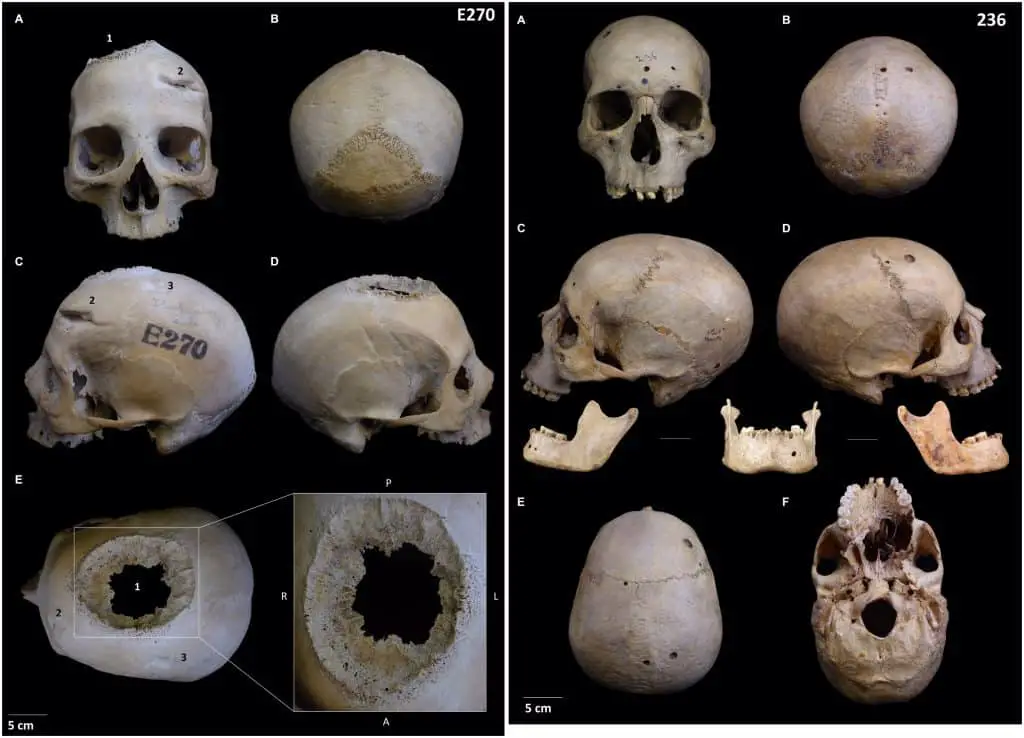From ancient manuscripts we know that the Egyptians possessed advanced medical skills. They were able to diagnose And cure different illnesses, make prostheses and perform dental fillings. Instead, for diseases such as cancer, it is known that they did not have the knowledge necessary to treat them effectively. However, the analysis of two human skull cases, one of which dates back to approx 4,000 years agorevealed attempts at surgeries to remove abnormal tissue and an interest in studying postmortem disease.
The analysis of the two skulls
To conduct this research, scientists examined two skulls belonging to the Duckworth Collection from Cambridge University. The skull and jaw 236, dated between 2687 and 2345 BC, were of a man aged between 30 and 35. While the skull E270dated between 663 and 343 BC, was of a woman over the age of 50.
Microscopic observations identified a sizable lesion on skull 236, potentially related to a neoplasm, as well as a thirty metastases small in size. The discovery of incision marks around these metastases surprised researchers, suggesting the use of a primitive metal scalpel. Professor Albert Isidro, oncological surgeon at the University Hospital Sagrat Cor and expert in Egyptology, noted that microscopic analysis suggests the practice of experimental surgical interventions by the ancient Egyptians in areas affected by cancer cells.
Tatiana Tondinione of the authors of study Published on Frontiers in Medicine and researcher at the University of Tübingen, explained that their study set out to explore the role of cancer in the pastanalyzing its diffusion and the strategies adopted by ancient societies to deal with this disease.
The role of women in antiquity
E270, attributable to a woman, were also identified on the skull two lesions healed, resulting from a violent and close trauma, probably caused by a cutting weapon. The presence of these healed lesions suggests the possibility that the woman survived thanks to surgery.
The peculiarity of this wound, rarely found on a female corpse, leads researchers to reconsider the role of women in antiquity. As highlighted by Tondini: “Is it possible that this woman was involved in war activities? If this were the case, we should reconsider the active role of women in conflicts.“

#Thousandyearold #skulls #reveal #early #cancer #treatment #attempts #ancient #Egypt

